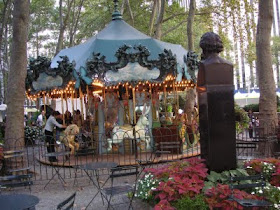
I am always encountering Goethe in new contexts. Today it is in an essay by Arthur Koestler entitled "The Intelligentsia" (in the collection The Yogi and the Commissar). As Koestler says at the beginning, it is one of those terms difficult to define but easy to associate, "logically blurred but emotionally vivid, surrounded with a halo, or rather several halos which overlap and vary according to period and place." He lists several varieties: the Romantic salon, the Bohemians of Montmartre, terrorist organizations of students and aristocracy in Russia in the second half of 19th century, Bloomsbury, Montparnasse. As he says, the "aura" of intelligensia changes all the time. To orient himself, Koester consults "the Oxford dictionary," wherein it stands written: "Intelligentzia, -sia, The par of a nation (esp. the Russian) that aspires to independent thinking." A little later is the passage in which he mentions Goethe.

"Among the upper strata of the Third Estate the aspiration to independent thinking was not a luxury but a dire necessity of survival. The young bourgeoisie hemmed in by the stultifying feudal structure, had to conquer its historic Lebensraum, and this conquest was only possible by blowing up the feudal totems and taboos with the dynamite of 'independent thought.' The first modern intellectuals were the Encyclopaedists, and they enter the historical stage as the great debunkers and iconoclasts. Goethe resurrected is unimaginable in our time, but Voltaire would be within a fortnight acclimatised in Bloomsbury, winning all weekend competitions of the New Statesman. For Goethe was the last Renaissance genius, a direct descendant of Leonardo, and his attitude to Society that of a courtier of some enlightened Florentine prince; whereas with Voltaire, the great debunking of feudal values begins."
I think the term "Renaissance man" is overused in connection with Goethe; the matter is really more complex, but Koestler is right in saying that Goethe was not a debunker or representative of typical attitudes of his era. The drive -- not simply the aspiration -- to so-called independent thinking characterized many Europeans at mid-20th century -- Koestler's essay dates from 1942 -- but he is reflecting on those who, in the 1920s and 1930s, rushed to proclaim the new world order being established in the Soviet Union, in the process seeking to debunk capitalism and bourgeois civilization. By 1942, when Koestler's wonderful novel Darkness at Noon appeared, alerting the world to the true nature of Soviet communism, Koestler was rather despairing about intellectuals. (See here for an irreverent take on this social category.)

Along these lines, I came across today a long review essay in The New Republic by Enrique Krauze concerning Gabriel García Márquez. Márquez is of course a great fan of the Cuban dictator, Fidel Castro. Márquez's most recent biographer, Gerald Martin, calls him the "new Cervantes," but Krauze will have none of it: in moral terms there is no comparison with Cervantes, who was a hero in the war against the Turks, wounded and maimed in battle, castaway and prisoner in Algeria for five years: "Cervantes lived his ideals, his tribulations and his poverty with Quixote-like integrity and enjoyed the supreme freedom of accepting his defeats with humor. There is not a trace of such greatness of spirit in Garcia Marquez, who has avidly collaborated with oppression and dictatorship."
In Krauze's account Garcia Marquez resembles the Western communists who, according to Koestler, were likewise blind to the truth about Soviet communism: "five million Cubans who belonged to the Committees for the Defense of the Revolution, [Garcia Marquez saw] not as the spies and enforcers of the Revolution but as its happy, spontaneous, multitudinous 'true force,' or, more plainly -- in the chilling words of Castro himself, admiringly quoted by Garcia Marquez -- 'a system of collective revolutionary vigilance that ensures that everybody knows who the man next door is and what he does.'"
Well, I have certainly got far away from Goethe, haven't I? What I like about studying Goethe is that one is far removed from these contemporary intellectual disputes. As Yeats said: "The best lack all conviction, while the worst are full of passionate intensity."































